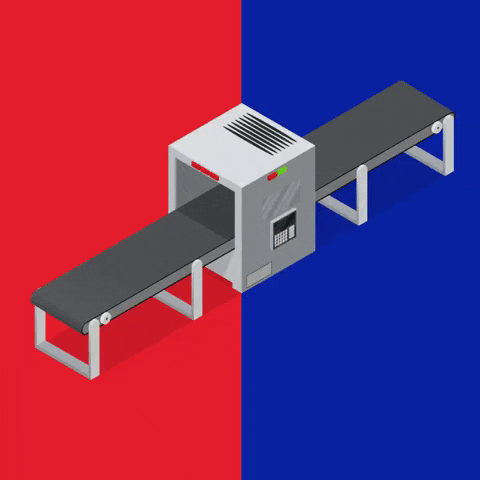Welcome to another weekly edition of the Sports-Tech Biz Mag! Every Friday, we learn about intriguing topics related to sports, business, and technology. If you’re reading this online or in a forwarded email, sign up for the newsletter:
Hi!
One of the most exciting up-and-coming technologies in the world is blockchain technology.
I would say that there are four types of people surrounding blockchain technology:
‘Legit b-chainers’: Those who understand and invest in blockchain technology.
‘Unenlightened ignorants’: Those who barely know about blockchain’s existence but couldn’t care less.
‘Bitcoin gamblers’: Those who know nothing about it but still invest in it.
‘Old-school rationals’: Those who understand about it but are scared to invest in it.
Here’s a meme to complement my theorem:

Seriously now, regardless of your level of knowledge or investment in blockchain, you can’t ignore the fact that this technology is part of our present and will undoubtedly be part of our future.
Given that it’s a specific and slightly complex topic, I've decided to build a two-part-series edition of it in the magazine.
We’ll take a deep dive into blockchain technology, its most relevant applications, some potential contributions to sports, and what it will take from the sports industry to adopt such tech.
Shall we?
Blockchain Technology

It all started in 2008 when an individual (or perhaps a group of individuals) under the pseudonym of Satoshi Nakamoto published this paper, disrupting the traditional financial system by proposing the replacement of government-issued currencies with a universal digital currency.
Wait but, ELI5 – What is the blockchain? I’m glad you ask.
The blockchain is a set of algorithms (code lines) running in a chain of networked computers that cooperate to validate transactions.
The blockchain leverages many complex technologies, but one of the most important things you need to understand is that there are multiple variants and ways to arrange the code to support different blocks (aka applications).
To understand how sports organizations can apply blockchain technology, let’s first understand two blockchain applications: cryptocurrencies and smart contracts.
Cryptocurrencies

The most influential blockchain yet has been the cryptocurrency known as bitcoin. Cryptocurrencies allow people to exchange money on a digital platform, anonymously and without intermediaries.
How does it work?
Crypto’s works similar to your wallet, but digitally. It manages everyone’s balance, and you can transfer value from your account to another.
Say you want to transfer 10 USD to your uncle Jake. The cryptocurrency (say bitcoin) network validates the transaction by checking that you have the 10 USD, deducting it from your account, and handing it to Jake.
“Yeah, dude, but I can already do that using my bank’s 3-star-rated app.”
Sure, but crypto takes no transaction fee, it’s quicker, anonymous, and private.
Mind = blown 🤯.
Smart Contracts

Smart contracts are a second relevant benefit of the blockchain.
Smart contracts digitally define a relationship between multiple parties by combining traditional arrangements with data that can trigger actions, reset states, and execute agreements (legal and others).
Additionally, blockchain can be responsible for evaluating and validating data, allowing the data owners to choose what to do with it.
Aggregating blockchain technology with devices that collect data, use AI, or connected to the internet (IoT) opens up an infinite number of opportunities to provide value in any sector and industry, including sports.
Blockchain in Sports
Knowing now that the blockchain is a network of distributed computers that validates transactions and that smart contracts can digitally enforce agreements based on changes in data, we’ll explore a few areas of opportunity for blockchain technology in the sports industry.
Scouting and Recruiting

Scouting a kid by visiting a town and watching him play has never been a scalable proposition. Similarly, it is challenging for an athlete to establish himself as a legitimate prospect if he’s not ‘seen.’
It makes me wonder. How much talent in the world goes to waste (i.e., not found) under the current scouting and recruiting system?
Data collection can create a scalable model for scouting, but many questions arise. Who will validate the data? Who will own the rights to this data? Can the athlete own the rights to the privacy of his/her data?
The answer is blockchain technology.
The validation and subsequent securitization of data is a hallmark of blockchain.
Combining blockchain technology with measurement and data-collection devices can securely package, validate, and confirm the data and provide each athlete’s privacy rights.
Once this structure is adopted, can recruiters find the next LeBron James by merely looking at the data?
We’ll see.
Player Compensation

As we’ve learned before, sports teams and organizations tie incentives into players’ contracts.
Can teams automate compensations and incentives?
The answer is yes, with smart contracts.
Nowadays, in sports, almost every move in the playing field is quantified and saved. Combining the amounts of data captured with blockchain technology will open opportunities for new and different performance-based compensations.
Think about this: data today can predict ‘shot probability’; the chance of making a shot from a specific location on the field (not necessarily tied to ability).
What if teams could reward players for making challenging shots?
Could this motivate players to practice and perform better?
Building a contract that issues payment based on triggers of unique microtransactions is a very viable use of blockchain.
As you can see, blockchain technology is legit.
Next week, we’ll dive into more areas of opportunity for blockchain in sports and the challenges for its adoption.
Make sure you’re signed up for the newsletter to get part 2 of this article right in your inbox:
QUICKIE
🎙Being a Football Journalist in the Middle East, I had a fantastic chat in the podcast with Uri Levy, founder of BabaGol, about football culture in Israel, his company's story, and his take on being a journalist in the Middle East.
Did you learn something new today?

Until next week,
Ronen Ainbinder
Twitter: @Ronenain
Website: ronenainbinder.com
-
Sports-Tech Biz
Twitter: @sports_techbiz
Instagram: @sportstechbiz
Read more: sportstechbiz.substack.com.
-
Halftime Snacks Podcast




